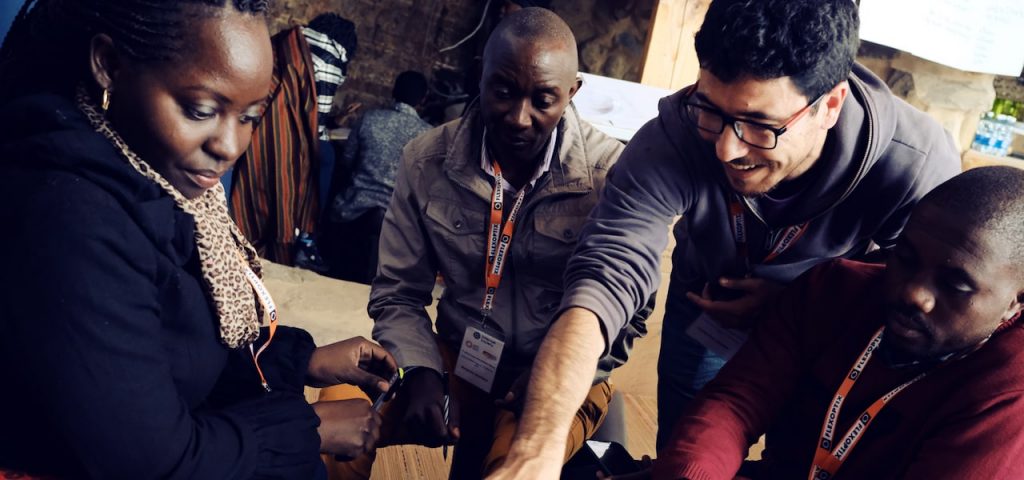Author Archives: Salam Yamout
Author Archives: Salam Yamout

In November, a routing incident in Nigeria caused Internet traffic to be rerouted through Russia and China. It lasted for just over an hour, but during that time, it significantly affected some cloud and search services globally, including Spotify and Google’s Search. It was one of more than 10,000 incidents, such as route hijacking and leaks, that occurred in 2018. Past events have led to large-scale Denial of Service attacks, stolen data, and financial losses.
The global routing system is the backbone of the Internet. It determines how everything – from email messages to videoconferences to website content – moves from network to network. The November event, caused by a configuration mistake with a small ISP in Nigeria, shows that routing incidents can have significant global effects – impacting the security of the Internet itself.
A number of network operators around the world – including Oracle, GÉANT, and Comcast – have joined MANRS to address these types of routing threats. The Mutually Agreed Norms for Routing Security (MANRS) initiative, supported by the Internet Society, does this through technical and collaborative action across the Internet. Those who join agree to take meaningful action to keep the Internet safe for everyone – Continue reading

Internet Exchange Points are now considered to be an integral part of the Internet infrastructure worldwide. In very simple terms they are layer 2 switches that are used to route traffic that can be kept local instead of sending that traffic to the nearest major Internet node (usually located in Europe) and back. None of the countries of the Middle East contain enough globally-connected major Internet infrastructure so basically, all Internet traffic generated and terminated in the same country has to be routed through Europe. With well-implemented Internet Exchange Points, local Internet traffic stays local. Examples of local Internet traffic are financial transactions with your bank through online banking, requesting copies of your birth record from an e-government service, or any interaction with locally-hosted content.
Internet Exchange Points have three main benefits: lower latency, better cost efficiency, and control-of-traffic-sovereignty.
In the day and age of instant gratification and communications through social media and videos, latency, or the time it takes to fetch a web page, needs to be minimal and under 10ms as per industry standard (every 100km causes 1ms delay). In order to optimize the user experience, content providers have built their own global networks and spread their servers Continue reading

Two weeks ago, the Editorial Board of the New York Times published a piece predicting that the Internet is heading for a breakup.
Based on the comments made by Alphabet Chairman Eric Schmidt during a private event the Times set out to paint a picture of a world with three Internets.
The timing is understandable. We’re in a world where things like the European Union’s General Data Protection Regulation is met with an equal measure of acceptance, annoyance, and confusion around the world.
And, just last week, my colleague Konstantinos Komaitis warned about what could happen as decision-makers are imposing rules that spill over onto the Internet, hamper innovation, deter investment in their own countries, and risk creating new digital divides.
These events set the stage for the Plenipotentiary meeting of the International Telecommunications Union (ITU).
And, in today’s climate, there are many who believe the Internet could be failing us.
So, we need to speak loudly about the fact that the Internet is not failing.
So far, I think the Internet has been a force for good.
The Internet allows us to do things like expand our access to education, build businesses, and grow our economy.
The Internet Continue reading

On October 2nd, the Internet Society was happy to support the ITU in organizing the IXP Workshop on Peering and Interconnection in the Arab World “Towards unlocking regional interconnection opportunities” It was held in Manama-Bahrain, and kindly hosted by the Telecommunications Regulatory Authority (TRA) of Bahrain. This workshop was held on the eve of the Annual Meeting of the Arab ICT Regulators Network (AREGNET), and 30 regulators and 10 operators attended from all over the Arab region.
The workshop started with an overview of the Arab peering landscape given by Christine Arida, Director for Telecom Services and Planning at National Telecom Regulatory Authority of Egypt. Christine showed that the region is well served by undersea cables, with the oldest IXP established 20 years ago. However, all countries have either an underperforming IXP or do not have one at all. Regionally, cross-border interconnection is almost non-existent – with very few exceptions and most of the traffic is exchanged in London and Marseilles.
The debate started with an acknowledgement that strong and vibrant IXPs are needed in the Arab region. IXPs are a means and not the end… They are the enablers of digital transformation and a means to attract investment. Cheaper Continue reading
Internet access and the development of digital skills can transform lives of over 350 million people in the Middle East. With more than 60% of the population under 25 years old, the region is one of the most youthful in the world. However, at the same time, young people are the ones facing several challenges regarding education and employment.
In this context, it is imperative for the region to take actions, and the Internet is an opportunity to do it now.
This week, I had the opportunity to speak at a panel entitled “Digital Skills for the Labour Force and Entrepreneurs,” at MENA Innovation 2018. The session was moderated by Selim Eddé, from Google, and had the participation of high-level representatives from Egypt, Saudi Arabia, and UAE.
While it was clear that there are many ways to overcome the challenges of the region, all panelists agreed on one key aspect: the importance of education and entrepreneurship for building the future that the region needs.
For the Internet Society, three key factors need to be taken into account: